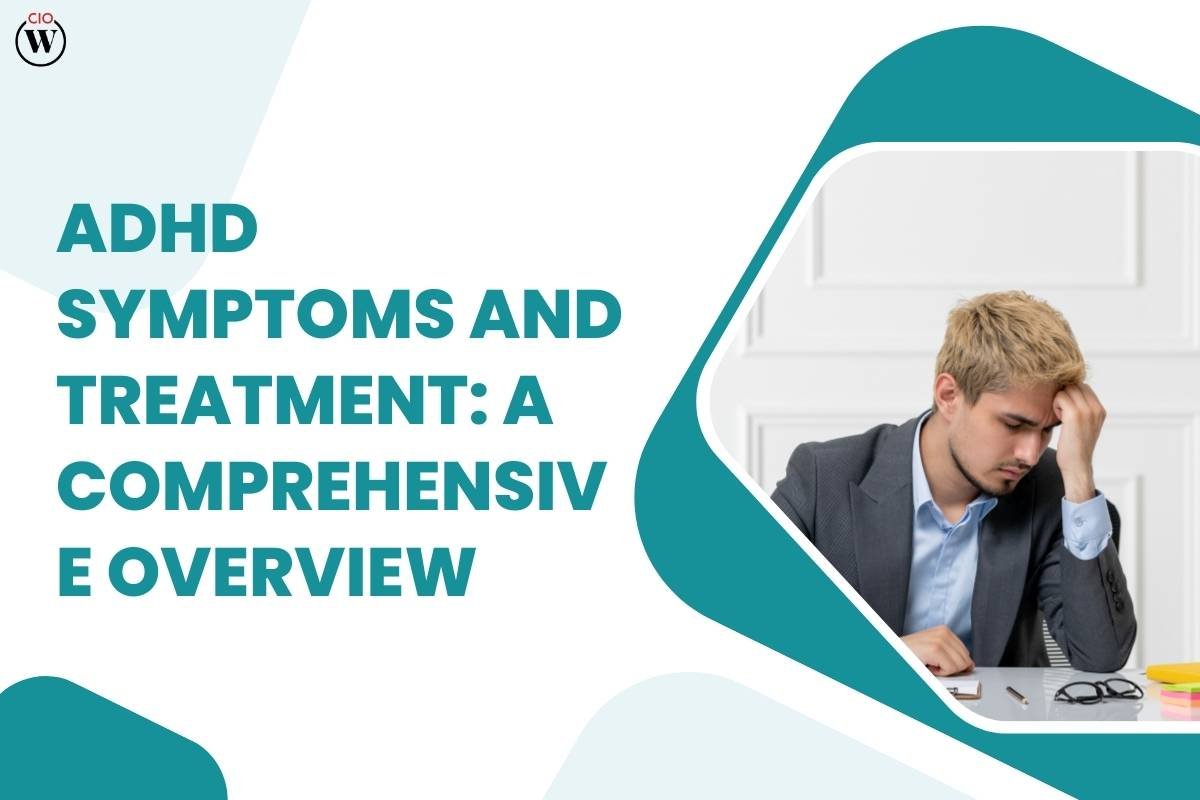Attention Deficit Hyperactivity Disorder (ADHD) is a neurodevelopmental disorder that affects both children and adults. Characterized by symptoms such as inattention, hyperactivity, and impulsivity, ADHD can significantly impact an individual’s daily life and functioning. This article explores ADHD symptoms and treatment options, aiming to provide a thorough understanding of the disorder and the various strategies available to manage it.
Understanding ADHD Symptoms and Treatment
ADHD symptoms are typically categorized into two main types: inattentive and hyperactive-impulsive. Some individuals may exhibit symptoms predominantly from one category, while others may have a combination of both. Recognizing these symptoms is crucial for early diagnosis and effective treatment.
Inattentive Symptoms
- Difficulty Sustaining Attention: Individuals with ADHD often struggle to maintain focus on tasks or activities. This can manifest in various settings, including school, work, or home environments.
- Careless Mistakes: Due to a lack of attention to detail, individuals may make frequent mistakes in their work or school assignments.
- Difficulty Organizing Tasks: Planning and executing tasks can be challenging, leading to procrastination or incomplete projects.
- Avoidance of Sustained Mental Effort: Activities that require prolonged concentration, such as reading or completing homework, are often avoided.
- Easily Distracted: External stimuli, such as noises or visual distractions, can easily divert attention away from tasks.
- Forgetfulness: Forgetting daily tasks, appointments, or responsibilities is common.

Hyperactive-Impulsive Symptoms
- Restlessness: Individuals may feel the need to move constantly, often fidgeting or tapping their hands or feet.
- Inability to Stay Seated: Staying seated for extended periods can be difficult, leading to frequent movement or leaving one’s seat in inappropriate situations.
- Excessive Talking: There may be a tendency to talk excessively or interrupt others during conversations.
- Impulsivity: Acting without thinking, such as making hasty decisions or interrupting others, is a hallmark of impulsivity in ADHD.
- Difficulty Waiting: Waiting for one’s turn in activities or conversations can be challenging.
Diagnosis of ADHD
Diagnosing ADHD involves a comprehensive evaluation by a healthcare professional, typically a psychologist or psychiatrist. The process includes:
- Clinical Interviews: Gathering information from the individual, as well as parents, teachers, or other caregivers, to understand the presence and impact of ADHD symptoms.
- Behavioral Assessments: Using standardized questionnaires and rating scales to evaluate the severity and frequency of symptoms.
- Medical Evaluation: Conducting a physical examination to rule out other medical conditions that may mimic ADHD symptoms.
- Review of History: Considering the individual’s developmental, academic, and family history to identify patterns consistent with ADHD.
ADHD Symptoms and Treatment Options
Effective management of ADHD often requires a multifaceted approach, combining medication, behavioral therapy, lifestyle changes, and support systems. Here, we explore the various ADHD treatment options available.
Medication
Medication is often a cornerstone of ADHD treatment. The primary types of medications used include stimulants and non-stimulants.
- Stimulants: These medications, such as methylphenidate (Ritalin) and amphetamine-based drugs (Adderall), are the most commonly prescribed for ADHD. They work by increasing the levels of certain neurotransmitters in the brain, which helps improve attention and reduce hyperactive and impulsive behaviors. Stimulants are known for their quick onset of action and effectiveness in many individuals with ADHD.
- Non-Stimulants: For those who do not respond well to stimulants or experience significant side effects, non-stimulant medications like atomoxetine (Strattera) or guanfacine (Intuniv) may be prescribed. These medications have different mechanism of action and can be effective in managing ADHD symptoms.
Behavioral Therapy
Behavioral therapy is a crucial component of ADHD treatment, especially for children. It involves working with a therapist to develop strategies to manage symptoms and improve functioning.

- Cognitive Behavioral Therapy (CBT): CBT helps individuals with ADHD develop coping skills, manage time effectively, and modify negative thought patterns that contribute to impulsive behaviors.
- Parent Training and Education: For children with ADHD, educating parents about the disorder and teaching them behavior management techniques can be highly beneficial. This training helps parents create a structured and supportive environment at home.
- Social Skills Training: Many individuals with ADHD struggle with social interactions. Social skills training focuses on improving communication, conflict resolution, and relationship-building skills.
Lifestyle Changes
Incorporating certain lifestyle changes can significantly impact the management of ADHD symptoms and treatment. These changes may include:
- Diet and Nutrition: Maintaining a balanced diet rich in whole foods, fruits, and vegetables can support overall brain health. Some individuals may benefit from reducing sugar and caffeine intake.
- Exercise: Regular physical activity has been shown to improve attention, reduce hyperactivity, and enhance mood. Encouraging activities that the individual enjoys can lead to more consistent exercise habits.
- Sleep Hygiene: Ensuring adequate and quality sleep is essential, as sleep problems are common in individuals with ADHD. Establishing a consistent bedtime routine and creating a sleep-friendly environment can help improve sleep patterns.
Support Systems
Building a strong support system is vital for individuals with ADHD. This includes support from family, friends, educators, and support groups.
- Family Support: Family members play a critical role in providing emotional support and understanding. Open communication and patience are key in helping a loved one manage ADHD symptoms.
- Educational Support: Teachers and school counselors can implement accommodations to support students with ADHD, such as extended time for tests, seating arrangements to minimize distractions, and individualized education plans (IEPs).
- Support Groups: Joining support groups, either in-person or online, can provide a sense of community and shared experience. These groups offer a platform to share strategies, gain insights, and receive encouragement from others facing similar challenges.
Emerging Treatments and Research
Research into ADHD symptoms and treatments is ongoing, and new treatment approaches continue to emerge. Some of the promising areas of research include:
- Neurofeedback: This technique involves training individuals to regulate their brainwave patterns through real-time feedback. While research is still ongoing, neurofeedback has shown potential in improving attention and reducing hyperactivity.
- Mindfulness and Meditation: Practices such as mindfulness and meditation have been found to enhance attention and emotional regulation. Incorporating these practices into daily routines may provide additional benefits for individuals with ADHD.
- Genetic Research: Understanding the genetic basis of ADHD can lead to more personalized treatment approaches. Research in this area aims to identify specific genes associated with the disorder, which could pave the way for targeted therapies.

Conclusion
ADHD is a complex disorder that requires a comprehensive and individualized approach to treatment. Understanding ADHD symptoms and treatment options is crucial for managing the disorder effectively. While medication and behavioral therapy remain the cornerstone of treatment, incorporating lifestyle changes and building a strong support system can significantly enhance outcomes. As research continues to evolve, new and innovative treatments hold promise for the future, offering hope for improved management and quality of life for individuals with ADHD.









